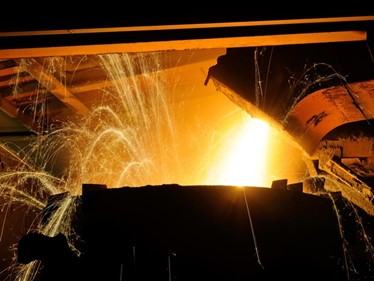-
Fears EU carbon border tax will produce unwanted results, but Chinese steel manufacturers looking to decarbonise
Date posted:
-
-
-
Post Author
Patrick LaveryCombustion Industry News Editor
-
-

The Financial Times has published an interesting article on the ramifications of the European Union’s Carbon Border Adjustment Mechanism, a trial phase of which launched at the end of last year, and under which the first reporting is due this month.
The CBAM aims to incentivise non-EU producers of steel, cement, iron, aluminium, fertilisers, electricity, and hydrogen to decarbonise their processes by applying a carbon tax on imports of such products into the EU. With the UK announcing the introduction of its own carbon border tax in December last year, and other countries such as Japan and the USA thought to be considering similar measures, there may be growing incentives for producers from other countries to invest in decarbonisation.
Nevertheless, there are concerns that non-EU producers (such as China, Russia, India, Turkey and Ukraine) will selectively export to the EU products produced with lower carbon intensities, and export to other countries, or use domestically, higher carbon intensity products. Such a scenario is easy to imagine – there may be a small number of more modern plants within a country that produce low-intensity products, and then older plants with higher-intensity production. Another risk is that production of goods made from the included products will be off-shored to circumvent the tax – for instance, washing machines with steel components could be made outside of the EU and then imported into the EU and not be subject to the CBAM (as it stands now).
Together, these have the possibility of producing an overall picture where the CBAM does little for the global climate, even while helping the EU meet its own climate goals. The introduction of similar schemes in other countries would however help to avert this problem. Despite that risk, there are signs that the CBAM is already having positive effects.
The FT reports that 400 Chinese steel industry executives and engineers met in November last year to discuss how to decarbonise steel production within the country, with the matter being given “burning” political urgency. For its part, the EU will be using the trial phase to discover how to improve the design of the CBAM, and it looks set to have deep impacts on heavy industry both within the EU and globally.
